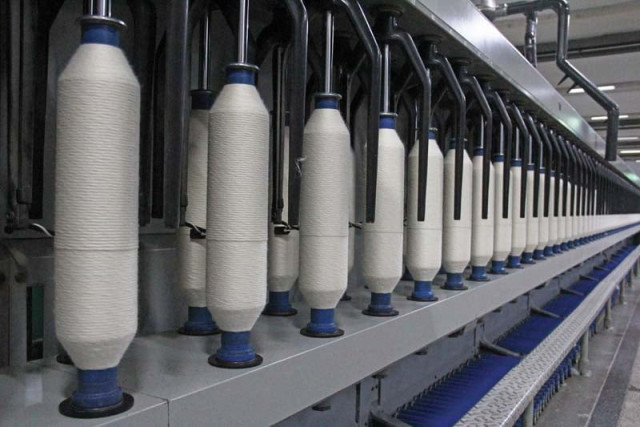Export earnings: GSP Plus has proved fruitful but more needs to be done
Private sector, govt admit target achieved; investment still needed.

The government set a target of an additional $1 billion from the country’s total exports to the European Union (EU), but after crossing the $900-million mark in the first nine months (Jan-Sep), the country can now expect to cross well over $1.2 billion by the end of this year.
The private sector and the government admit that these earnings are the pillar of Pakistan’s balance of payments at a time when its overall exports are either stagnant or declining.
“The growth in exports to the EU is supporting the overall exports. Otherwise, we are all aware of its dismal state,” Commerce Minister Khurram Dastgir Khan said while talking to textile exporters during his recent visit to Karachi.
Perhaps, the first thing that elevated the spirits of exporters and the government was the export figures of Eurostat – the EU’s data collection agency – which reported an additional $770 million for the first eight months (Jan-Aug 2014) period.
According to the Eurostat’s recent data, with additional exports of about $140 million in September 2014, the total increase in the EU’s exports have already touched $910 million (Jan-Sep) 2014.
Now, one can expect that even if Pakistan adds $100 million monthly, the country can easily touch $1.15 billion during the year.
Dastgir recently announced that the country’s exports to the EU have reached $5.7 billion in the first nine months (Jan-Sep 2014), up $909.1 million from $4.79 billion in the same period of last year.
“Looking at the recent figures, I think Pakistan’s exports to the EU can easily increase by $1.15 billion,” Pakistan Apparel Forum Chairman Jawed Bilwani said.
Textile, being the largest export industry of Pakistan, has the leading share in EU’s exports as well. Optimistic textile exporters believe 2015 will be a good year as far as exports to the EU are concerned.
What will hurt?
However, there are many who think structural problems like uncertain security situation and rising cost of utilities like electricity prices are hurting the growth of exports.
“The recent growth is favourable but the country could have done an even better job because of its huge potential. Security problems and non-availability of utilities are the major problems for the Pakistani exporters,” Kamran Chawla, a Karachi-based knitwear exporter, told The Express Tribune.
Most of the textile exporters The Express Tribune spoke to were pointing at problems faced by exporters instead of talking about ways to make the most of the GSP Plus scheme.
The GSP Plus scheme is likely to stay for another nine years, and the situation demands our exporters to invest in finished garments’ business that provides the highest returns.
Pakistan’s textile exports that constitute over 50% of the total exports is effectively stagnant at around $13 billion for the past many years because industrialists are busy producing raw-materials or basic unfinished products that do not fetch desired margins.
With over $19 billion in textile exports, Bangladesh – Pakistan’s main competitor in the textile industry – has already gone too far by investing in quality readymade garments. After China, Bangladesh is the second biggest textile exporter as it has doubled its exports in the last 10 years leaving both its traditional competitors – Pakistan and India – far behind in the competition.
Instead of waiting for government incentives, Pakistani exporters need to pinpoint segments that earn higher margins and invest in them. The EU trade concession under the GSP Plus scheme is the ideal opportunity to Pakistan’s textile exporters for soul searching and recovering the lost ground.
The writer is a staff correspondent
Published in The Express Tribune, December 22nd, 2014.
Like Business on Facebook, follow @TribuneBiz on Twitter to stay informed and join in the conversation.



















COMMENTS
Comments are moderated and generally will be posted if they are on-topic and not abusive.
For more information, please see our Comments FAQ